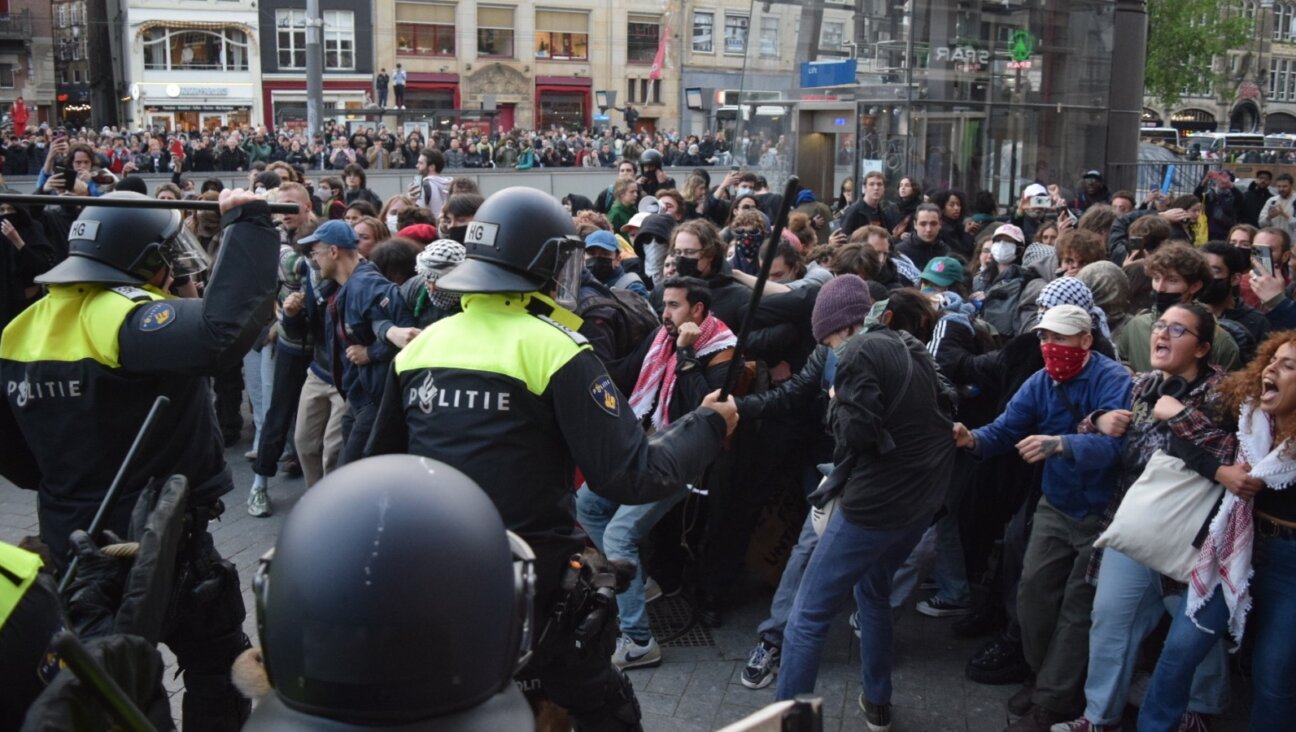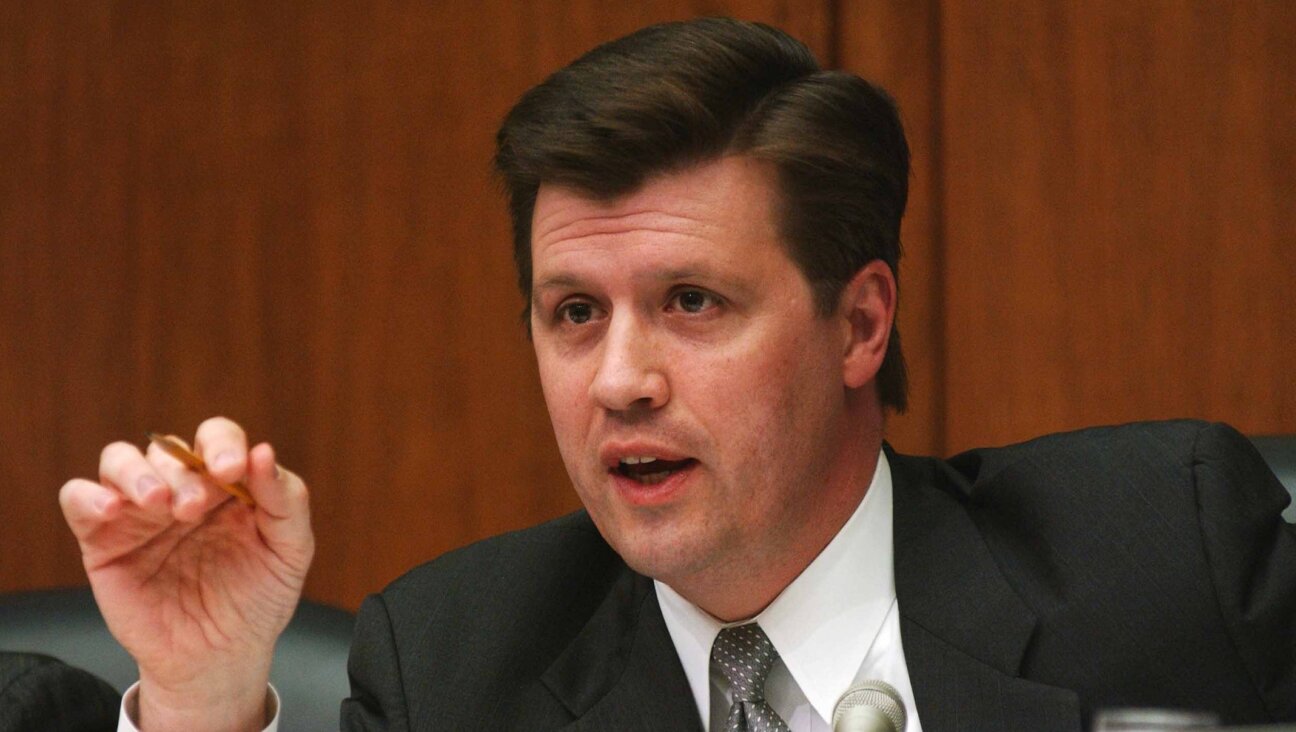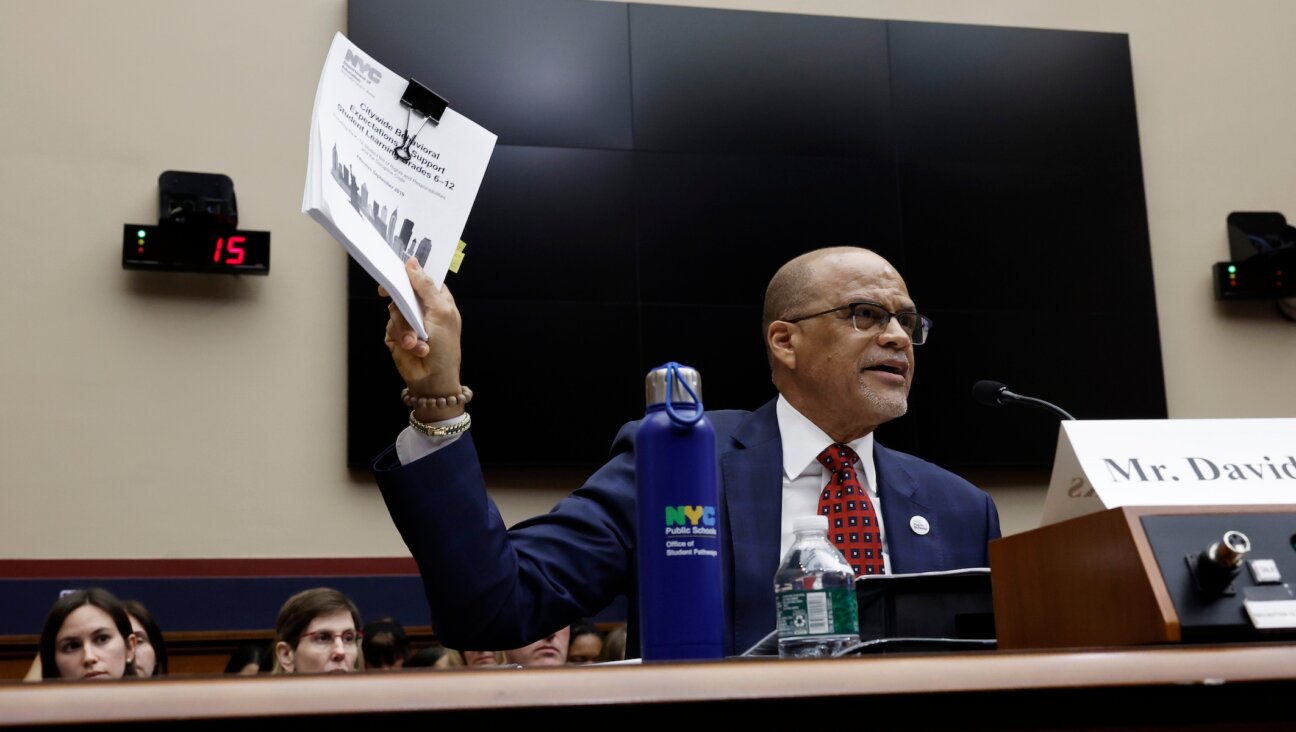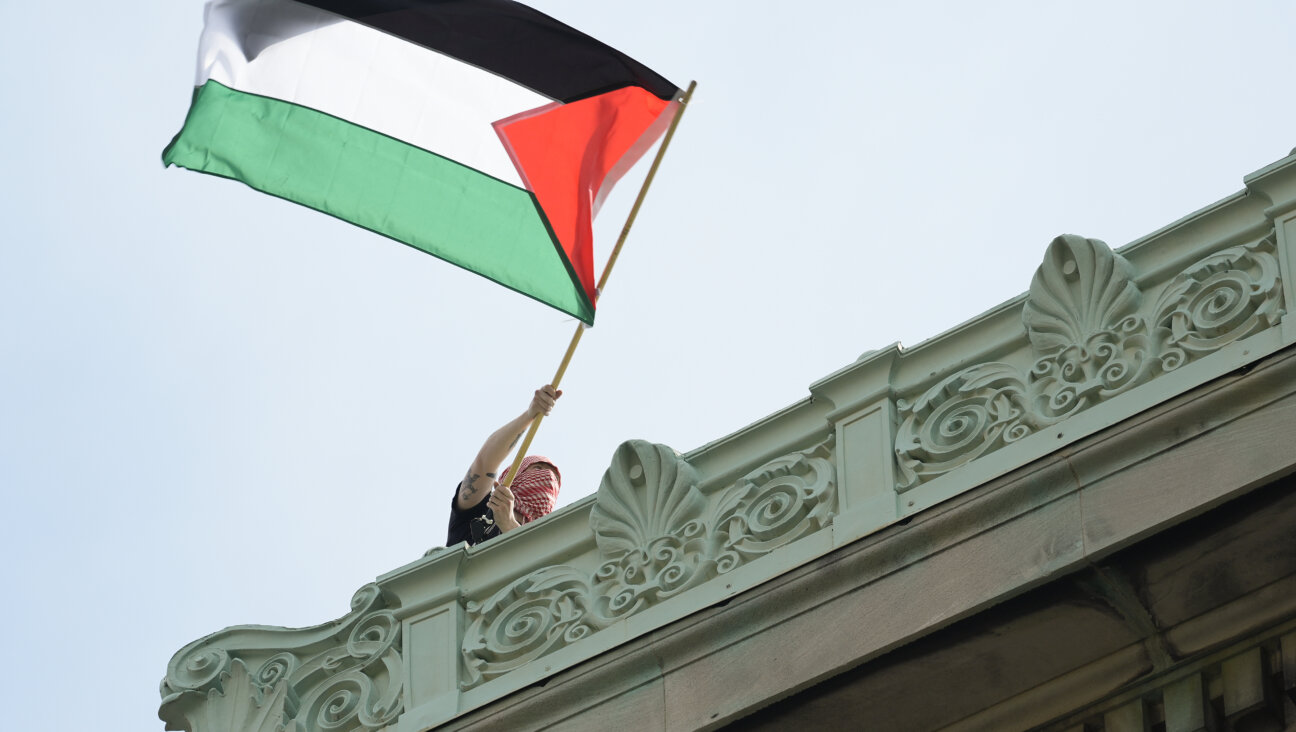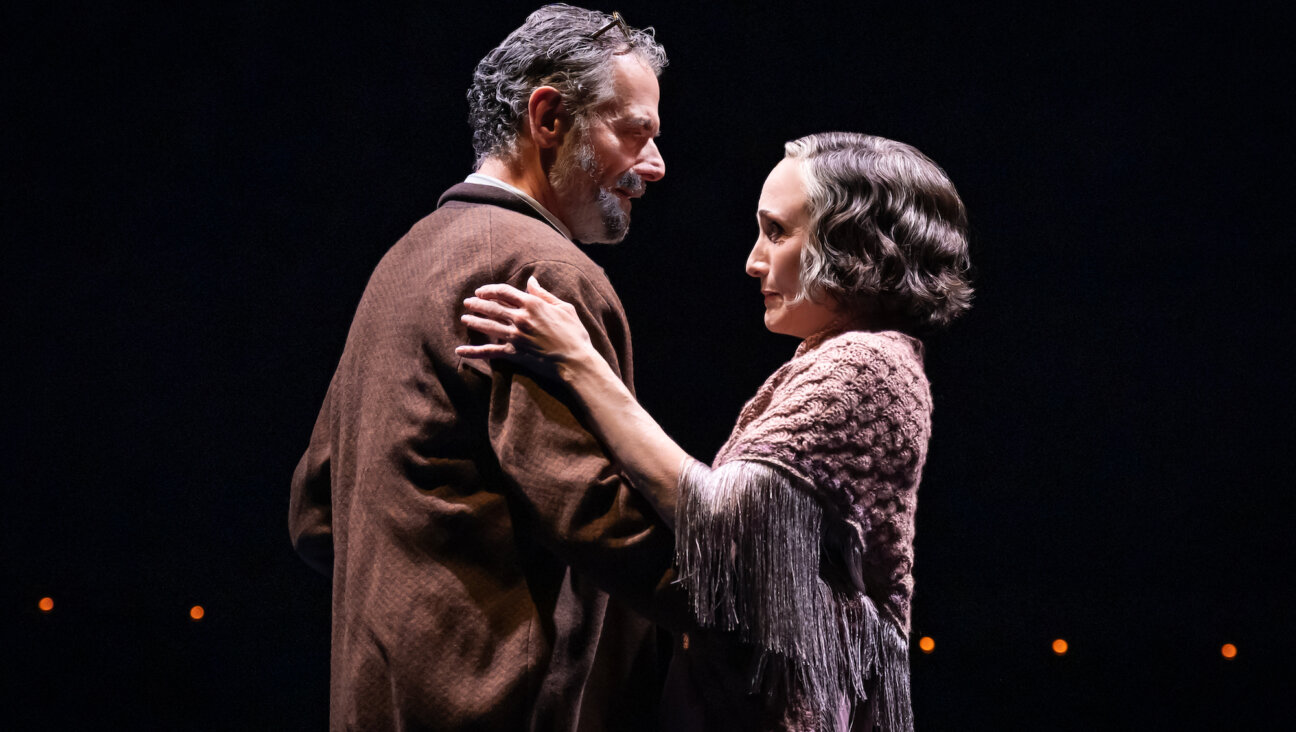‘You don’t know yet, do you?’ How Jews offline for a 2-day holiday found out about the attack on Israel

(Westend61/Getty Images)
(JTA) —When Rabbi James Proops arrived at his Modern Orthodox synagogue in Livingston, New Jersey, on Saturday morning, he found three people waiting to meet him: two members of the security committee and a non-Jewish guard.
“As I approached, they looked at me … you know, I could see there was something wrong with the look,” Proops recalled on Monday. “And they said, ‘Rabbi, You don’t know yet, do you?’ And I said, ‘Don’t know what?’”
That was how Proops learned about the horrors unfolding in Israel — an attack by Hamas that would leave more than 900 Israelis dead, wounded and taken captive in brutal fashion.
It would fall to him to pass the grim news along: Because Proops’ synagogue, Suburban Torah, is Orthodox, most congregants refrain from using electronic devices on Shabbat or on the following day, which was the Jewish holiday of Simchat Torah. That meant, he said, “The vast majority of people that were coming to synagogue came that morning [had] no clue what was going on.”
Proops chose the moment in the service when Jewish communities recite a prayer for those in need of healing to share that, in fact, many Jews were hurt. He offered numbers that were staggering — yet far smaller than what would become known.
“The whole sanctuary was in absolute silence as I began to relay what was going on in Israel,” he said. “And I could see in the faces, just shock and bewilderment.”
It was a scene that would unfold countless times over the weekend. There was no question about how Israelis who observe Shabbat and holidays found out about the attack on their country on Saturday morning, as sirens announced incoming rockets, phone alerts sounded and soldiers were called to duty. They got more details on Saturday night when the Simchat Torah and Shemini Atzeret holiday ended in Israel and they turned their phones back on.
But in the rest of the world, where the two holidays are celebrated over consecutive days, the process of finding out was slower and more drawn out. Orthodox Jews often found themselves relying on non-Jews to feed them details about the catastrophe unfolding in the country where they have many friends and family.
Avital Chizhik-Goldschmidt was on her way to teach a Torah class for bat mitzvah-aged girls when a member of her synagogue approached her.
“You don’t know what’s happening in the world. It’s really bad,” the woman told her.
“I didn’t understand what I was even hearing from her,” recalled Chizhik-Goldschmidt, a longtime journalist who has contributed to the New York Times and The Atlantic and now leads The Altneu synagogue in New York City with her husband. But when she returned to the main sanctuary from the class, she saw that something had changed.
“There were people hanging off the rafters, it was so packed with Jews,” she recalled. “And I just saw on their faces that they had seen something very traumatizing. And they didn’t know how to process it. I just saw the look on their faces.”
Throughout the morning, Chizhik-Goldschmidt said several people came up to her in a repeat of her first encounter — telling her that she did not know what was happening.
“I understood in that moment that this was not another rocket exchange,” she said. “It’s a very strange experience to be an observer, and you’re sort of in this almost hermetically sealed bubble in time and space.”
But living in New York City, Chizhik-Goldschmidt explained, meant having access to plenty of people who did know what was happening and who had seen the news. She began walking into different bodegas to ask for information. She spoke to her doorman. At the synagogue’s kiddush, she spoke to the wait staff, asking them in Spanish how many people had died.
“It felt like from another era, when there are rumors, and you don’t know what is true,” Chizhik-Goldschmidt said. “I heard there was a pogrom. I heard there was a pogrom in another city. I heard there were Jews. I heard there were rapes. I heard, I heard, I heard. It was a total mess. … Unfortunately, all of them were true, but it was just so impossible to comprehend at the time that all those things could happen.”
Avi Rovinsky, who attended an Orthodox synagogue in Cleveland, learned about the attack when the rabbi informed the congregation in the middle of the morning prayer service on Saturday. The congregation paused their prayers to recite three chapters of Psalms — a traditional Jewish response to tragedy. “Whenever the rabbi spoke it was about the joy of the holiday while still having your heart ripped out,” Rovinsky said.
Rabbi Aaron Finkelstein of Anshe Sholom B’nai Israel in Chicago found out from an Israel congregant who was waiting for him at the synagogue with a flask. Finkelstein said he cracked a joke about it being too early to drink before being told about what was happening in Israel. He then relayed the news to his congregation during services, just before the Yizkor prayer of mourning recited four times a year, including on Saturday.
“It was certainly a holy burden to be able to kind of share that in real time,” he said.
Proops said he got details over the course of the holiday from Debbie, the former police officer his synagogue had hired to provide security over the weekend, in keeping with the practice of many American synagogues.
As a police officer, Debbie had gone on an exchange trip to learn from law enforcement in Israel and had stayed with a police officer’s family. She learned early on, Proops said, that her host had been killed in the attack on Saturday.
“The woman who’s outside protecting us is feeling it just like we are — that was actually a very moving and painful moment,” he said.
Another moment was also a source of pain and anxiety, he said: 7:15 p.m. on Sunday evening, when the two-day holiday ended.
“I dreaded turning my phone on, I’ll be honest with you. Because you know, 36 hours had gone by since the initial outbreak of attacks. And I had no idea what I was going to find from relatives, friends, colleagues,” Proops said. “And so with trepidation, we finished the services last night with some extra Psalms. And then we had to kind of connect with the real world, so to speak.”
This article originally appeared on JTA.org.

I hope you appreciated this article. Before you go, I’d like to ask you to please support the Forward’s award-winning, nonprofit journalism during this critical time.
Now more than ever, American Jews need independent news they can trust, with reporting driven by truth, not ideology. We serve you, not any ideological agenda.
At a time when other newsrooms are closing or cutting back, the Forward has removed its paywall and invested additional resources to report on the ground from Israel and around the U.S. on the impact of the war, rising antisemitism and the protests on college campuses.
Readers like you make it all possible. Support our work by becoming a Forward Member and connect with our journalism and your community.
Make a gift of any size and become a Forward member today. You’ll support our mission to tell the American Jewish story fully and fairly.
— Rachel Fishman Feddersen, Publisher and CEO
Join our mission to tell the Jewish story fully and fairly.







